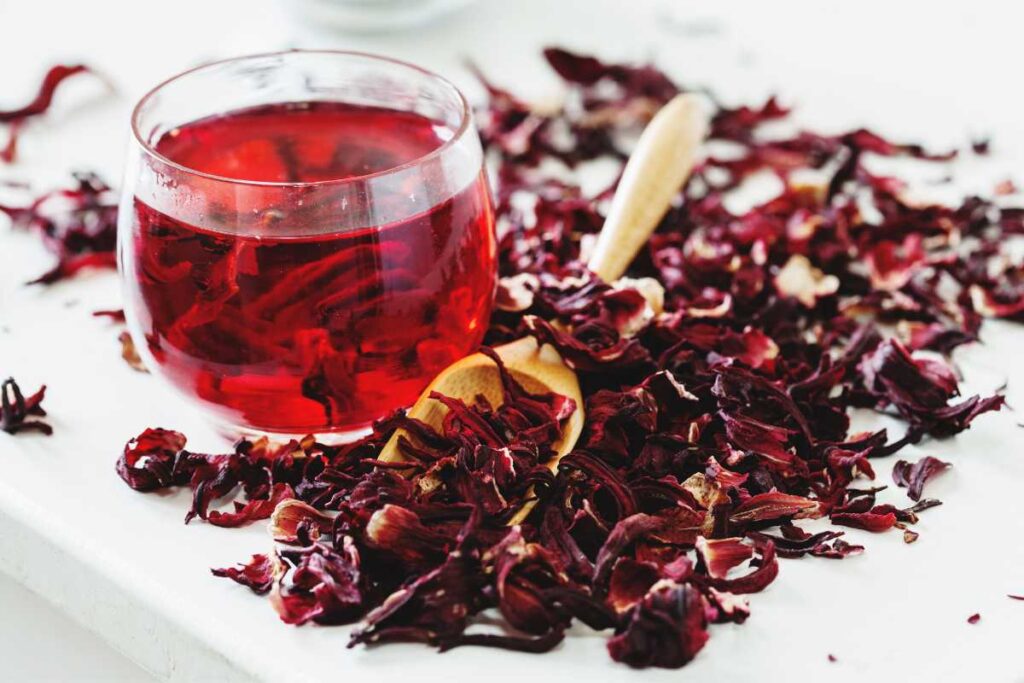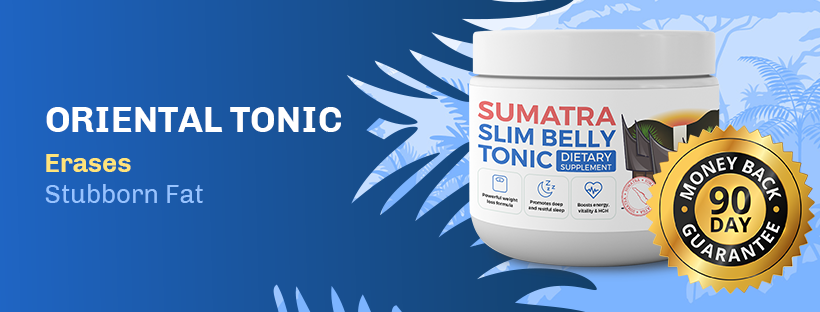Unlocking the Health Secrets of Hibiscus Tea: Benefits, Recipes, and More

Introduction to Hibiscus Tea
Hibiscus tea has been gaining popularity in recent years for its health benefits and distinct flavor. This antioxidant-rich beverage is made from the dried calyces of the Hibiscus sabdariffa flower and offers numerous health benefits, including lowering blood pressure and improving heart health. In this article, we will explore the origins and popularity of Hibiscus tea, its health benefits, nutritional value, and various ways to prepare and enjoy this flavorful drink.
Origins of Hibiscus Tea
Hibiscus tea is believed to have originated in Africa, where it was used as a refreshing beverage and natural remedy for various health issues. It was later introduced to other parts of the world, including Egypt, India, and the Caribbean, through trade and cultural exchange. Over time, each region has developed its own unique preparation methods and flavor profiles, contributing to the global popularity of Hibiscus tea.
Popularity Around the World
Today, Hibiscus tea is enjoyed in many parts of the world, including Latin America, where it is known as “agua de Jamaica” and is often served as a cold, sweetened beverage. In Egypt, it is called “karkade” and is typically consumed hot with sugar. The unique, tangy taste of Hibiscus tea, coupled with its numerous health benefits, has made it a popular choice for health-conscious consumers worldwide.
Health Benefits of Hibiscus Tea
Lowering Blood Pressure
One of the most well-known Hibiscus tea benefits is its ability to lower blood pressure. High blood pressure, or hypertension, is a significant risk factor for heart disease and stroke.
Studies Supporting Hibiscus Tea for Hypertension
Several studies have demonstrated the effectiveness of Hibiscus tea in lowering blood pressure. In a study published in the Journal of Nutrition, researchers found that consuming Hibiscus tea daily for six weeks significantly reduced systolic and diastolic blood pressure in adults with mild hypertension. Another study in the Journal of Ethnopharmacology found that Hibiscus tea was as effective as the antihypertensive medication captopril in reducing blood pressure in patients with hypertension.
Improving Heart Health
In addition to lowering blood pressure, Hibiscus tea has also been shown to improve overall heart health by reducing blood fat levels and lowering cholesterol levels.
Mechanisms Behind Cardiovascular Benefits
The cardiovascular benefits of Hibiscus tea can be attributed to its high content of antioxidant compounds, which help to prevent the oxidation of LDL (low-density lipoprotein) cholesterol. Oxidized LDL cholesterol contributes to the development of atherosclerosis, a condition in which plaque builds up in the arteries, increasing the risk of heart attack and stroke.
Reducing Inflammation
Chronic inflammation is associated with many health issues, including heart disease, diabetes, and cancer. Hibiscus tea has been found to have potent anti-inflammatory properties, which can help reduce inflammation in the body.
Hibiscus Tea’s Anti-inflammatory Compounds
The anti-inflammatory effects of Hibiscus tea are primarily due to its high content of polyphenols, a group of naturally occurring compounds with antioxidant and anti-inflammatory properties. These polyphenols, including anthocyanins and flavonoids, help to neutralize harmful free radicals and reduce inflammation in the body.
Aiding Digestion
Hibiscus tea has long been used as a natural remedy for digestive issues, including constipation and indigestion. Its mild diuretic and laxative effects can help promote regular bowel movements and alleviate symptoms of indigestion.
How Hibiscus Tea Supports Gastrointestinal Health
The digestive benefits of Hibiscus tea can be attributed to its high content of organic acids, such as citric and malic acid, which stimulate the production of digestive enzymes and promote healthy digestion. Additionally, Hibiscus tea’s mild diuretic effect can help reduce water retention and bloating.
Nutritional Value of Hibiscus Tea
Antioxidant Content
Hibiscus tea is rich in antioxidants, which help to protect the body from oxidative stress and prevent cellular damage. Antioxidants play a crucial role in promoting overall health and reducing the risk of chronic diseases, such as heart disease and cancer.
Comparing Antioxidant Levels with Other Teas
When compared to other antioxidant-rich foods and beverages, Hibiscus tea ranks highly. According to a study published in the Journal of Agricultural and Food Chemistry, the antioxidant content of Hibiscus tea is comparable to that of green tea, a well-known source of powerful antioxidants.
Vitamin C and Minerals
Hibiscus tea is a good source of vitamin C, which supports the immune system and helps the body fight off infections. It also contains essential minerals, such as iron, calcium, and magnesium, which contribute to overall health and wellbeing.
Impact on the Immune System and Overall Health
The high levels of vitamin C and minerals found in Hibiscus tea help to support the immune system, promote healthy skin, and maintain strong bones and teeth. Additionally, the antioxidants in Hibiscus tea help to protect the body from harmful free radicals, promoting overall health and reducing the risk of chronic diseases.
How to Make Hibiscus Tea
Ingredients and Tools Needed
To make Hibiscus tea, you will need the following ingredients and tools:
- Dried Hibiscus flowers (calyces)
- Hot water
- Sweetener of choice (optional)
- A teapot or heat-resistant pitcher
- A tea strainer or infuser
Step-by-Step Instructions
- Measure out the dried Hibiscus flowers, using approximately 1-2 tablespoons per 8 ounces of water.
- Place the Hibiscus flowers in a teapot or heat-resistant pitcher.
- Boil water and let it cool slightly before pouring it over the Hibiscus flowers.
- Allow the tea to steep for 5-10 minutes, depending on the desired strength.
- Strain the tea into a cup or another pitcher, removing the Hibiscus flowers.
- Sweeten the tea with your choice of sweetener if desired, and serve hot or let it cool and serve over ice.
Tips for Adjusting Flavor
To adjust the flavor of your Hibiscus tea, you can:
- Steep the tea for a shorter or longer time to control the strength and tartness.
- Add sweeteners, such as honey, sugar, or stevia, to balance the natural tartness of the tea.
- Combine the Hibiscus tea with other herbs or fruits, such as mint, ginger, or lemon, to create a unique flavor profile.
Variations of Hibiscus Tea
Cold Brew Hibiscus Tea
Cold brew Hibiscus tea is a refreshing alternative to traditional hot tea, especially during warmer months. The cold brewing process extracts a slightly different flavor profile from the Hibiscus flowers, resulting in a smoother and less tart taste.
Recipe for Cold Brew Hibiscus Tea
- Measure out the dried Hibiscus flowers, using approximately 1-2 tablespoons per 8 ounces of water. 2. Place the Hibiscus flowers in a large pitcher or glass container.
- Pour cold water over the Hibiscus flowers.
- Cover the container and refrigerate for at least 4 hours or overnight.
- Strain the tea into a cup or another pitcher, removing the Hibiscus flowers.
- Sweeten the tea with your choice of sweetener if desired, and serve over ice.
Sweetened and Unsweetened Hibiscus Tea
Hibiscus tea can be enjoyed either sweetened or unsweetened, depending on personal preference. The natural tartness of the tea can be balanced with various sweeteners, such as sugar, honey, or stevia.
How to Choose the Right Sweetener
When choosing a sweetener for your Hibiscus tea, consider factors such as taste preference, calorie content, and potential health benefits. Natural sweeteners like honey and stevia can offer additional health benefits, while sugar may be a more traditional choice.
Hibiscus Tea with Other Herbs or Fruits
Hibiscus tea can be combined with various herbs and fruits to create unique and delicious flavor profiles. Some popular combinations include:
- Hibiscus and mint: Add fresh or dried mint leaves to the tea while steeping for a refreshing twist.
- Hibiscus and ginger: Add fresh ginger slices or dried ginger powder to the tea while steeping for a warming and invigorating flavor.
- Hibiscus and lemon: Add freshly squeezed lemon juice or lemon slices to the tea for a zesty and vibrant taste.
Popular Blends and Recipes
Experiment with different herbs, fruits, and spices to create your own signature Hibiscus tea blends. Some popular recipes include:
- Hibiscus and cinnamon: Add a cinnamon stick or a pinch of ground cinnamon to the tea while steeping for a comforting and fragrant flavor.
- Hibiscus and berries: Muddle fresh berries, such as raspberries, blueberries, or blackberries, in the bottom of a glass and pour the prepared Hibiscus tea over the fruit for a naturally sweet and fruity twist.
- Hibiscus and orange: Add freshly squeezed orange juice or orange slices to the tea for a bright and citrusy flavor.
Possible Side Effects and Precautions
While Hibiscus tea is generally considered safe for most people, there are some potential side effects and precautions to consider.
Interactions with Medications
Hibiscus tea may interact with certain medications, such as antihypertensive drugs and diuretics. If you are taking any medications or have a medical condition, consult your healthcare provider before consuming Hibiscus tea.
How to Minimize Risks
To minimize the risk of interactions, inform your healthcare provider of all medications and supplements you are taking, and follow their recommendations regarding the consumption of Hibiscus tea.
Stomach Upset
In some cases, Hibiscus tea may cause stomach upset or discomfort. This is more likely to occur when consumed in large quantities or on an empty stomach.
Recommendations for Avoiding Discomfort
To reduce the risk of stomach upset, consume Hibiscus tea in moderation and avoid drinking it on an empty stomach. If you experience discomfort after consuming Hibiscus tea, consider reducing the amount you consume or discontinuing use altogether.
Conclusion
The Many Benefits and Versatility of Hibiscus Tea
Hibiscus tea is a flavorful and healthful beverage that offers a range of benefits, from lowering blood pressure and improving heart health to reducing inflammation and aiding digestion. Its high antioxidant content, along with vitamin C and essential minerals, make it a valuable addition to a balanced diet. With various preparation methods, flavor adjustments, and blend options, Hibiscus tea can be enjoyed by a wide variety of taste preferences.
Give Hibiscus Tea a Try (visit http://singaporeantea.com/)
Are you ready to experience the numerous health benefits and delicious taste of Hibiscus tea for yourself? Visit http://singaporeantea.com/ to explore our selection of high-quality Hibiscus teas and discover your new favorite beverage today.




